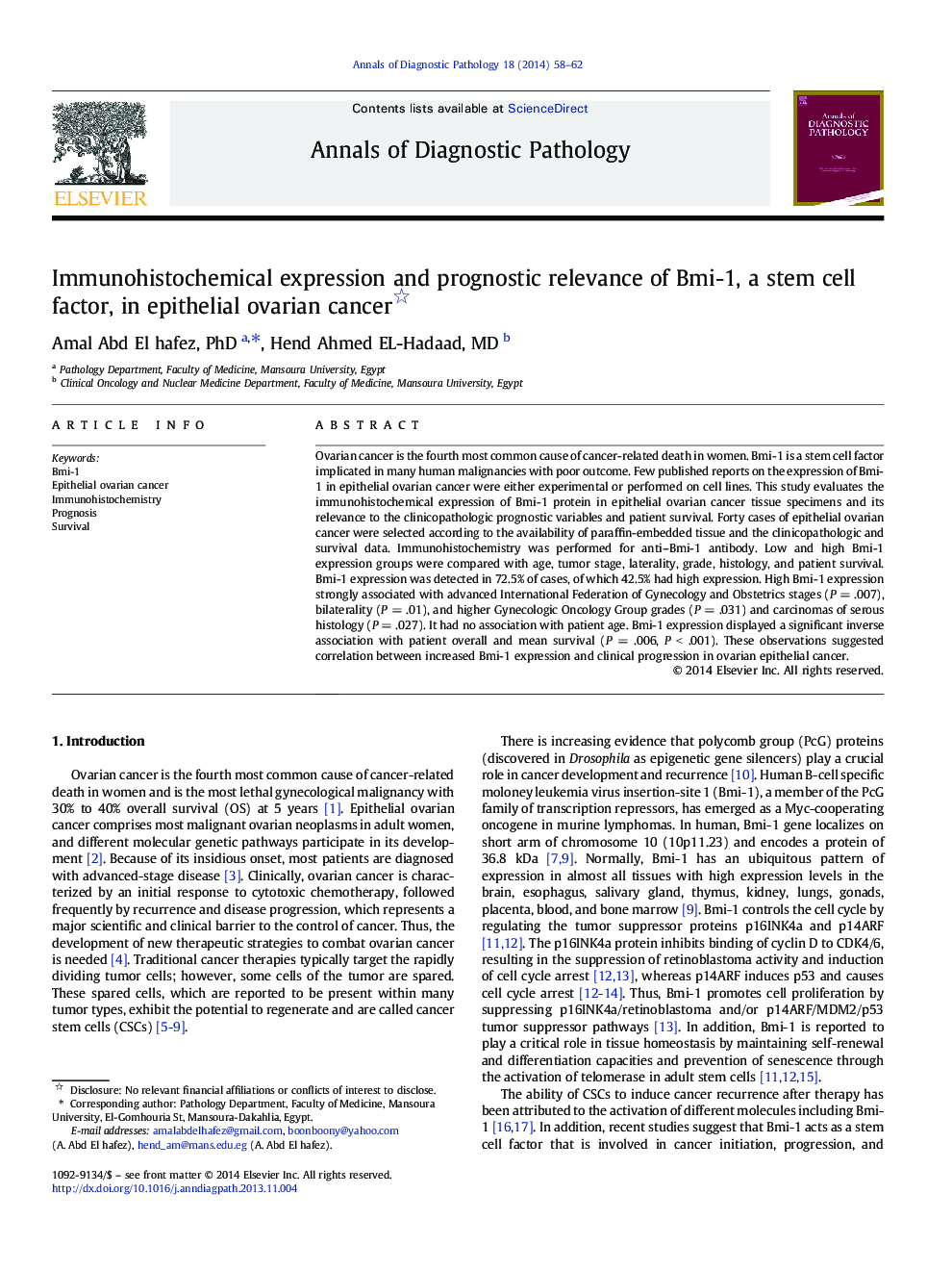| Article ID | Journal | Published Year | Pages | File Type |
|---|---|---|---|---|
| 4129831 | Annals of Diagnostic Pathology | 2014 | 5 Pages |
Ovarian cancer is the fourth most common cause of cancer-related death in women. Bmi-1 is a stem cell factor implicated in many human malignancies with poor outcome. Few published reports on the expression of Bmi-1 in epithelial ovarian cancer were either experimental or performed on cell lines. This study evaluates the immunohistochemical expression of Bmi-1 protein in epithelial ovarian cancer tissue specimens and its relevance to the clinicopathologic prognostic variables and patient survival. Forty cases of epithelial ovarian cancer were selected according to the availability of paraffin-embedded tissue and the clinicopathologic and survival data. Immunohistochemistry was performed for anti–Bmi-1 antibody. Low and high Bmi-1 expression groups were compared with age, tumor stage, laterality, grade, histology, and patient survival. Bmi-1 expression was detected in 72.5% of cases, of which 42.5% had high expression. High Bmi-1 expression strongly associated with advanced International Federation of Gynecology and Obstetrics stages (P = .007), bilaterality (P = .01), and higher Gynecologic Oncology Group grades (P = .031) and carcinomas of serous histology (P = .027). It had no association with patient age. Bmi-1 expression displayed a significant inverse association with patient overall and mean survival (P = .006, P < .001). These observations suggested correlation between increased Bmi-1 expression and clinical progression in ovarian epithelial cancer.
